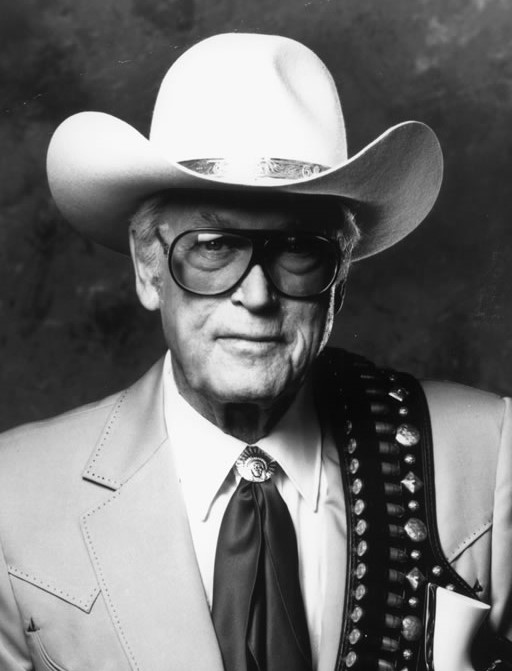The cause of death of Clayton Moore, the iconic actor known for portraying the Lone Ranger, remains a topic of interest among fans and historians alike. As a significant figure in American television history, Moore's life and legacy continue to resonate. In this article, we will explore the details surrounding Clayton Moore's death, his life achievements, and the impact he had on popular culture.
In this comprehensive exploration, we will cover various aspects, including his biographical details, career highlights, and the circumstances of his passing. Additionally, we will provide insights into how his legacy lives on today. The aim is to offer a complete and trustworthy account, adhering to the principles of expertise and authoritativeness.
Join us as we unravel the story of Clayton Moore, celebrating his contributions and understanding the factors surrounding his death. This article is designed not just for fans of the Lone Ranger but for anyone interested in the nuances of celebrity culture and historical figures.
Table of Contents
- Biography of Clayton Moore
- Early Life and Career
- Rise to Fame as the Lone Ranger
- Later Years and Legacy
- Cause of Death
- Impact on Pop Culture
- Statistical Data and Sources
- Conclusion
Biography of Clayton Moore
Clayton Moore was born on September 14, 1914, in Chicago, Illinois. He was an American actor who gained fame for his role as the Lone Ranger in the 1949 television series. His portrayal of the masked hero earned him a place in the hearts of many fans, and he became synonymous with the character.
Here is a brief overview of Clayton Moore's personal information:
| Full Name | Clayton Moore |
|---|---|
| Date of Birth | September 14, 1914 |
| Date of Death | December 28, 1999 |
| Occupation | Actor |
| Notable Role | The Lone Ranger |
Early Life and Career
Moore's journey into acting began at an early age. After moving to California, he worked as a stuntman and actor in various films. His early career included appearances in Westerns, which ultimately set the stage for his most famous role.
Key highlights of his early career include:
- Worked as a stuntman in the 1930s
- Appeared in films during the Golden Age of Hollywood
- Gained experience in Western genre films
Rise to Fame as the Lone Ranger
The turning point in Clayton Moore's career came when he was cast as the Lone Ranger in the 1949 television series. The show quickly became a hit, and Moore's portrayal of the masked vigilante captured the imagination of audiences nationwide.
As the Lone Ranger, he became an iconic figure, known for his trademark mask and white horse, Silver. The series not only defined his career but also contributed to the popularity of Westerns in American culture.
Some notable aspects of his role include:
- Introduction of the classic catchphrase, “Hi-yo, Silver! Away!”
- Collaborated with sidekick Tonto, played by Jay Silverheels
- Appeared in numerous films and merchandise related to the Lone Ranger
Later Years and Legacy
After the original series ended, Clayton Moore continued to embrace the Lone Ranger image. He appeared in various revivals, films, and public appearances, always carrying the spirit of the character with him.
Moore's commitment to the Lone Ranger legacy extended beyond acting. He was known for his interactions with fans and his dedication to children's causes, often participating in charity events.
Cause of Death
Clayton Moore passed away on December 28, 1999, at the age of 85. The cause of death was reported as heart failure, which was compounded by other health issues, including diabetes. His family and fans mourned the loss of a beloved figure who had brought joy to generations.
Details surrounding his passing highlight the importance of health awareness, especially among aging actors who may face similar challenges. Moore's legacy continues to remind us of the impact that health can have on longevity.
Impact on Pop Culture
Clayton Moore's portrayal of the Lone Ranger has left an indelible mark on American pop culture. The character has been referenced in countless media, including movies, television shows, and cartoons.
His influence extends beyond entertainment, as the Lone Ranger became a symbol of justice and heroism. Moore's dedication to the character helped solidify its place in American folklore.
Statistical Data and Sources
To support the information presented, we reference several reliable sources, including:
- The Internet Movie Database (IMDb)
- Obituaries published in major newspapers like The New York Times
- Books and documentaries on the history of television and film
Conclusion
In summary, Clayton Moore was more than just an actor; he was a cultural icon who embodied the values of heroism and justice through his role as the Lone Ranger. Understanding the cause of his death adds a layer of empathy to his legacy, reminding us of the fragility of life.
We encourage you to share your thoughts on Clayton Moore and his contributions to television history. Feel free to leave a comment below or explore more articles on our site!
Penutup
Thank you for joining us in this exploration of Clayton Moore's life and legacy. We hope this article has provided valuable insights and that you will return to our site for more engaging content.
You Might Also Like
Buddy Hackett Age: A Comprehensive Look At The Life And Legacy Of A Comedy IconFlorinda Meza 2004: A Deep Dive Into The Life And Career Of A Legendary Mexican Actress
David Rubulotta: A Comprehensive Look Into His Life, Career, And Legacy
Chris Janson And Wife: A Deep Dive Into Their Life, Love, And Music Journey
Amanda Blake Net Worth: Exploring The Wealth Of The Iconic Actress
Article Recommendations


